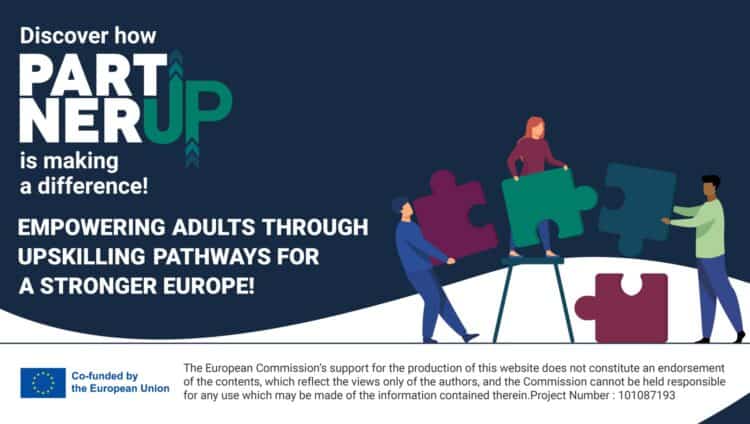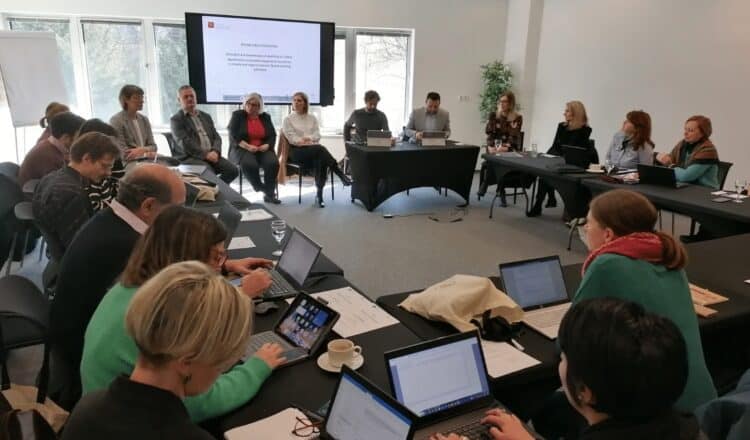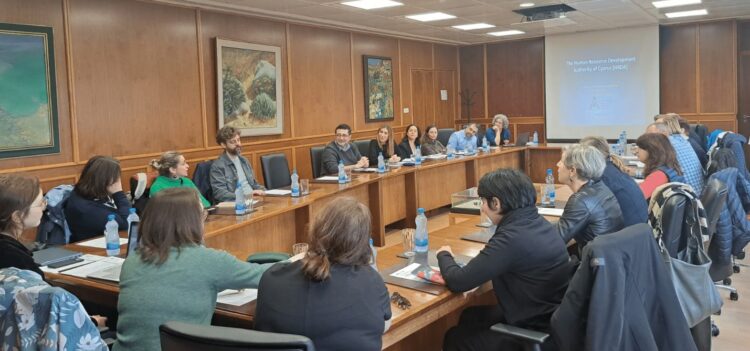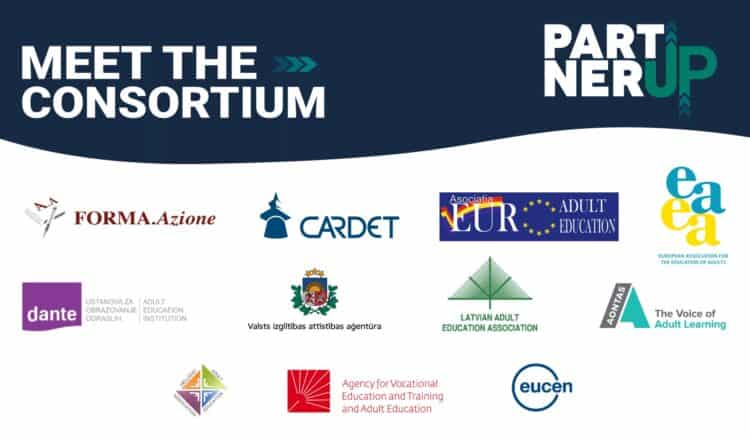
The PartnerUp Project has successfully concluded its transformative 26-month journey, expanding lifelong learning opportunities for adults across Europe. This initiative, born from the EU’s 2016 Recommendation on Upskilling Pathways, has played a vital role in empowering adults by equipping them with essential skills, ultimately helping them access secondary qualifications or equivalent education levels. Its impact is profound, addressing educational gaps and paving the way for a future where lifelong learning is integral to Europe’s societal framework.

Tackling Europe’s Educational Divide
One of Europe’s biggest challenges is the educational divide faced by adults with lower qualifications. These individuals often encounter barriers in securing stable employment and fully integrating into society. The PartnerUp Project confronted these issues by introducing innovative cooperation mechanisms, strategic interventions, and a commitment to sustainable educational practices.
With the EU aiming for a 47% adult education participation rate by 2025, the project engaged over 1000 stakeholders across Europe. These efforts promoted policies that support adult learners, enhance their workforce skills, and foster greater civic participation.

Key Achievements and Deliverables
At the heart of PartnerUp’s success was its tailored approach, focused on research, collaboration, and long-term solutions to adult education challenges. Some of its key achievements include:
- Stakeholder Engagement: The project engaged 758 stakeholders in consultations, peer-learning activities, and collaborative analyses. These included policymakers, educators, and community leaders, who played a crucial role in building trust and fostering collaboration across sectors.
- Interactive Road Maps: The creation of regional Road Maps, developed from insights gathered across seven partner countries and EU level, provides invaluable resources for advancing adult education. These tools are essential for policymakers and practitioners seeking to implement and scale adult learning initiatives.
- Study Visits: Eight study visits, with over 200 participants, allowed stakeholders to observe and discuss adult education strategies across Europe. These exchanges provided opportunities to identify challenges, explore solutions, and promote further collaboration.
- Tailored Implementation Plans: The project developed specific implementation plans for each of the seven partner countries, addressing gaps in their adult learning systems and ensuring the sustainability of the changes introduced.
- Virtual Map: The creation of the Virtual Map, an interactive tool that serves as a repository for the project’s findings, reports, best practices, and more. This digital resource is essential for anyone involved in adult education, providing easy access to knowledge and supporting lifelong learning systems across Europe. Explore the Virtual Map at partnerup-project.eu/virtual-map/.

Continuing the Impact: A Foundation for the Future of Adult Education
The direct impact of PartnerUp is extensive, with more than 1000 policymakers, learning providers, regional authorities, and other stakeholders benefitting from the project. These individuals are now equipped to foster lifelong learning in their communities, ensuring that adults across Europe can access the skills and opportunities they need to thrive in an ever-changing world.
The success of PartnerUp was made possible through the collaboration of a diverse consortium of organizations across Europe, including 11 organisations from 7 EU countries and the EU level.

Through cross-border cooperation, PartnerUp has significantly advanced the EU’s Upskilling Pathways initiative and supported the European Skills Agenda. This lays the foundation for an inclusive, sustainable adult education system, ensuring that future generations of adult learners will have the tools they need to succeed in the modern workforce.
For more information on how PartnerUp is continuing to shape the future of adult education, visit PartnerUp Project.
The European Commission’s support for the production of this article does not constitute an endorsement of the contents, which reflect the views only of the author. The Commission cannot be held responsible for any use of the information contained therein. Project Number: 101087193.
Dr. Charalambos Vrasidas is co-founder and executive director at CARDET, an international non-profit that designs innovative digital learning to empower people and organizations to thrive. He is a Professor of Learning Innovations and Associate Dean for e-learning at the University of Nicosia. An innovator, designer, educator, lifelong learner and social entrepreneur, he has designed and implemented many impactful initiatives in 40+ countries. Much of his work at CARDET and UNIC is focused on developing and implementing award-winning initiatives that nurture human performance, promote well-being, and integrate digital tools such as XR and AI for digital transformation. For more information, visitwww.cardet.org.

